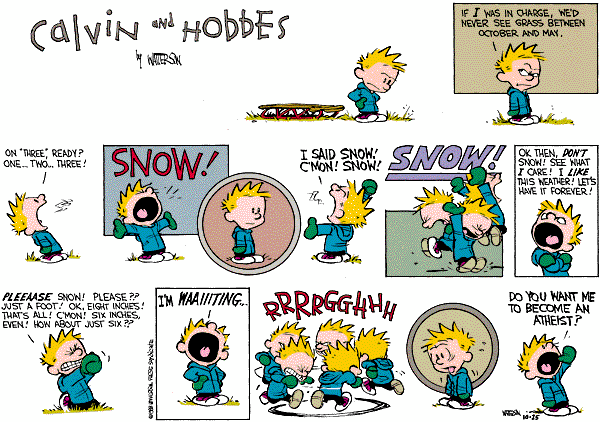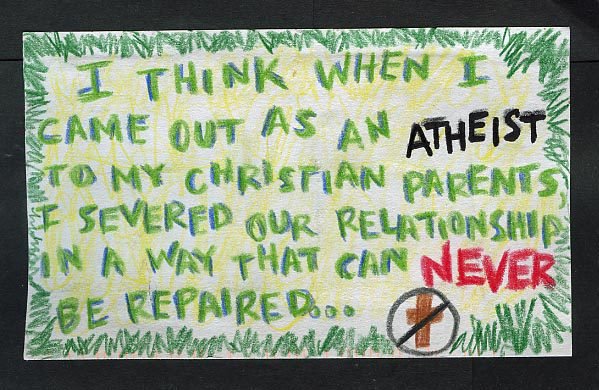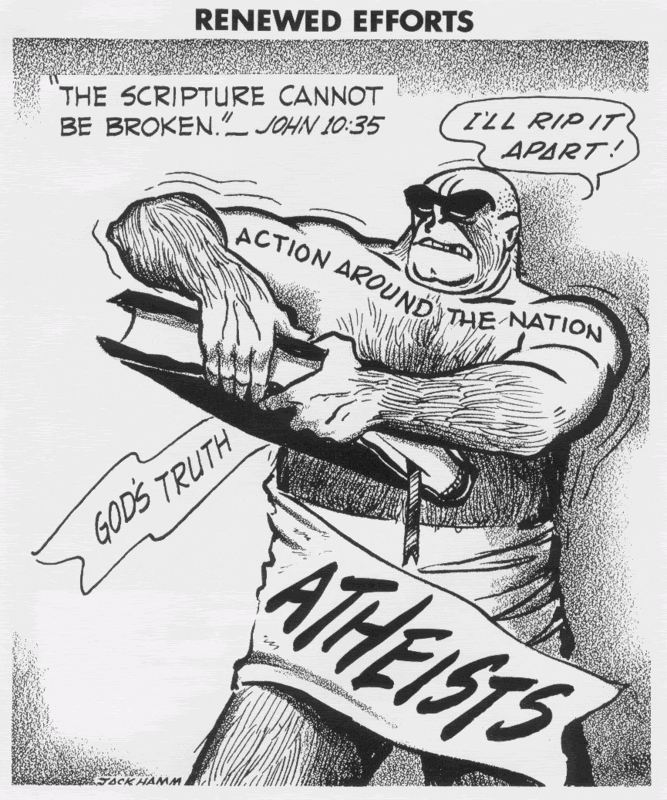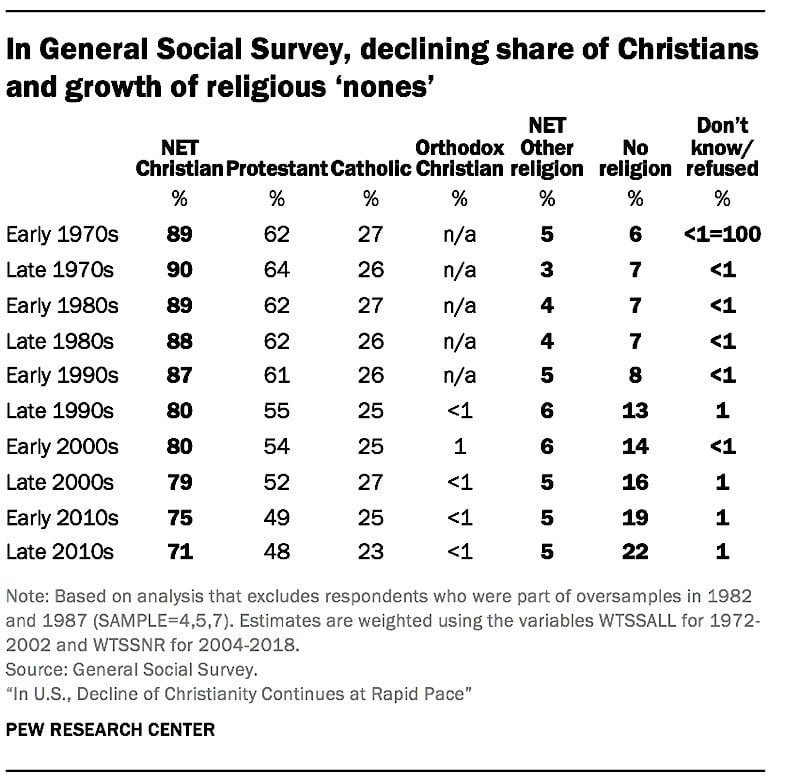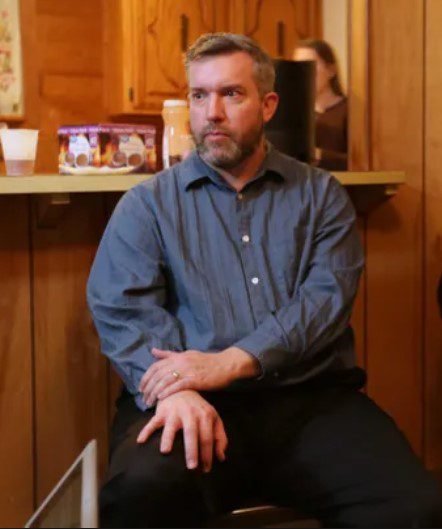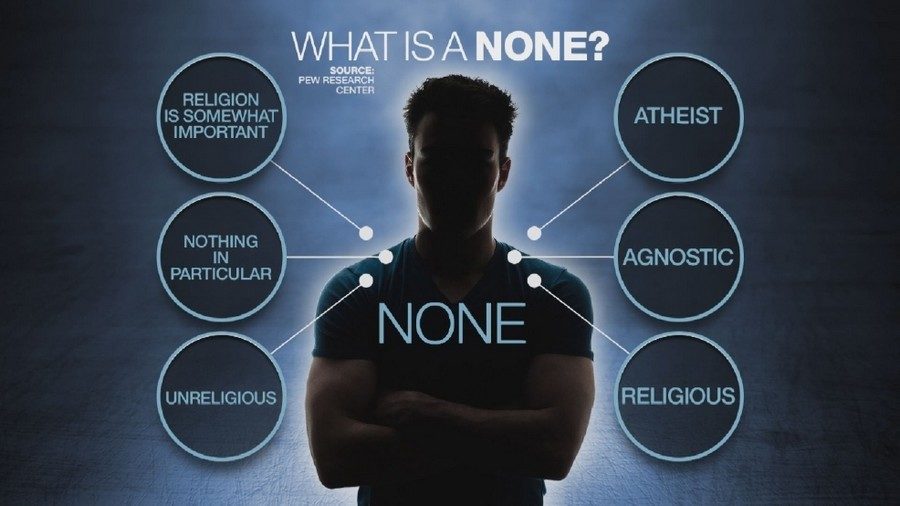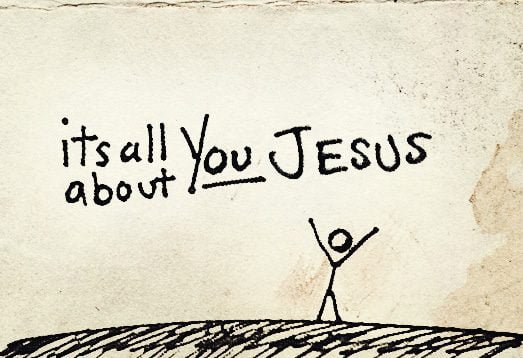
Recently Rodney Kennedy, pastor of Emmanuel Friedens Federated Church in Schenectady, New York, stated that atheists, along with skeptics, secularists, agnostics, and unbelievers, are gaslighting our entire culture; that atheists are to blame for the increasing level of unbelief in the United States.
Many of the skeptics, agnostics, secularists, atheists, and non-believers have gaslit our entire culture. As reward for this act of delusion, they have produced the age of unbelief.
….
How have atheists managed to gaslight so many Americans? There are many reasons why, but the ones we are qualified to make sense of are rhetorical: How did a group of nonbelievers establish such an epistemic power over such a large number of Americans? How did they establish credibility/authority? How have they swayed so many people to leave the church? There are various identifying marks that scholars have given to these departing groups: The NONE’s and the DONE’s.
Some of this persuasion comes in the form of personal testimony. Steven Weinberg ends his a lovely essay, “Without God,” explaining why he cannot believe in God with the confession, “Living without God isn’t easy. But its very difficulty offers one other consolation — that there is a certain honor, or perhaps just a grim satisfaction, in facing up to our condition without despair and without wishful thinking — with good humor, but without God.” The offer on the table that people are taking up is that life without God provides honor, dignity, a grim satisfaction. This seems a Esau-like bargain — a giving up of faith for the swill of atheist soup. This “grin and bear it” with a stiff upper lip seems a far distance from the hope that lives in the hearts of Christian believers.
Many atheists have managed to self-produce an aura of intelligence. The so-called “New Atheists” actually refer to themselves as the “Brights.” Smart people, in other words, no longer believe in God. This may be a reaction to the numbing anti-intellectualism of one form of Christian faith known as evangelicalism. In any event, smart people are presented as those with enough sense not to believe in God.
….
The atheists have an amazing self-confidence to insist that the secular creed has at last been proven: that a belief in a loving God is no longer possible. One of the ironies of the recent spate of books defending atheism is the confidence the “New Atheists” seem to have in knowing which God it is they are sure does not exist. The best-sellers in this genre of unbelief have been Christopher Hitchens, God Is Not Great: How Religion Poisons Everything; Sam Harris, The End of Faith; Daniel Dennett, Breaking the Spell; Richard Dawkins, The God Delusion. One gets the impression that this type of atheist is so sure of victory that their only remaining task is to watch the ship of faith crash into the rocks and sink into the dark and stormy sea.
A claim of superior intelligence, self-confidence bordering on arrogance, and an easy dismissal of more than 2,000 years of Christian belief provide the flares of the gaslighting project of the atheists. In previous moments of a wave of atheism, Christian theologians have weathered the storms. Now, the invention of “gaslighting” — emotional proof and manipulation — seem to give an advantage to the atheists. A generation not interested in reality, facts, or truth can be easily led to follow politicians, preachers, or atheists.
Kennedy takes a cheap shot at atheists, wrongly lumping all unbelievers together. Kennedy’s words sound Evangelical, yet when I checked out his church’s website, I found that the church is an LGBTQ-affirming liberal church; the product of a merger between an American Baptist church and a United Church of Christ congregation. So what gives with his cheap, ill-informed swipe at atheists? Does he not know any atheists? Does he really think we are to blame for the rising unbelief in the United States?
Kennedy wrongly assumes that “New Atheists” — are they even a thing anymore? — speak for all atheists. They don’t, and they never have. Imagine Kennedy’s objection if I said Franklin Graham, Robert Jeffress, Al Mohler, and Tom Ascol represented all Christians. Kennedy would be outraged and rightly chastise me for being ignorant about the depth and breadth of Christianity. This is exactly what he is doing when he says the Four Horsemen: Daniel Dennett, Sam Harris, Richard Dawkins, and the late Christopher Hitchens are the defacto representatives for atheism; as if there is even an “atheism” to represent.
Kennedy sees the alarming rise of the NONES and DONES and looks for reasons why this is happening. He concludes that atheists are to blame; that atheists are gaslighting our culture. (This leads me to think that Kenndy doesn’t understand what gaslighting really is.) According to Kennedy, the atheist worldview is swill — the slop given to hogs by farmers. Again, it seems that underneath Kennedy’s outward liberal persona lies Evangelicalism.
Kennedy doesn’t like that atheists offer a worldview rooted in reality, stripped of fanciful claims about salvation and Heaven. Why does this bother Kennedy so much? If Christianity is a superior worldview, why are people rejecting it, especially younger adults? Are atheists using myths, coercion, and fanciful claims to win over people to their cause? Of course not. We see life as it is. We don’t make promises we cannot keep or promises that have no basis in fact. Kennedy promises his flock bliss in the sweet by and by if they will but believe (and obey) in this life. Yet, people are no longer buying what Kennedy and other so-called men of God are selling. Why is that?
I suspect the main reason is that Christianity has failed to deliver on its promises. People are no longer willing to “trust” that the man in the pulpit is telling them the truth. Further, thanks to the Internet, people are learning that preachers don’t practice what they preach; that scores of ministers are arrested every year for sex crimes; that pastors say one thing from the pulpit and do another thing in the privacy of their homes. If Kennedy is looking for someone to blame for increasing unbelief, I suggest he look in the mirror. While atheism is increasing, most NONES and DONES are not atheists. They are people who look at organized Christianity and say “no thanks.”
The Internet has played a big part in the overturning of the tables in the Temple. For centuries preachers were gatekeepers of “truth.” People had nowhere else to turn. And then came the Internet. Christians could now fact-check their pastors or verify the veracity of their church experiences. What they found on the Internet didn’t line up with what they heard from the pulpit or saw in the lives of people who allegedly are followers of Jesus. Some of them found blogs authored by former Christians. I am one such ex-Evangelical. I have been blogging for fifteen years, telling my story to millions of people.
Why are people attracted to my writing? Am I serving up “swill” as Kenndy alleges? Am I pulling the wool over readers’ eyes? That’s for you to decide. I am just one man with a story to tell. I have no desire to make converts to atheism. I am content to tell my story and leave it at that. Sure, my critiques of Evangelicalism can be sharp, but there’s nothing subversive about them. I am content to write and leave it to readers to decide whether my words ring true.
Why did Kennedy write what he did? Did he think his words would effectively reach the NONES and DONES? If so, he might want to rethink that approach. Was his goal to goad atheists? Or maybe he’s a cleric trying to find ways to keep asses in the pews and dollars in the plates. Regardless of his motivation, he might want to consider how atheists could be his ally. Both Kennedy and atheists think Evangelicalism is causing material harm to our culture. Why not join together around a common cause? Further, Kennedy might want to actually talk with atheists about what they believe and why; about how they view religion and the world; what their wants, needs, and desires really are. As things stand, the only atheist Kennedy knows is a strawman.
Bruce Gerencser, 68, lives in rural Northwest Ohio with his wife of 47 years. He and his wife have six grown children and sixteen grandchildren. Bruce pastored Evangelical churches for twenty-five years in Ohio, Texas, and Michigan. Bruce left the ministry in 2005, and in 2008 he left Christianity. Bruce is now a humanist and an atheist.
Your comments are welcome and appreciated. All first-time comments are moderated. Please read the commenting rules before commenting.
You can email Bruce via the Contact Form.

